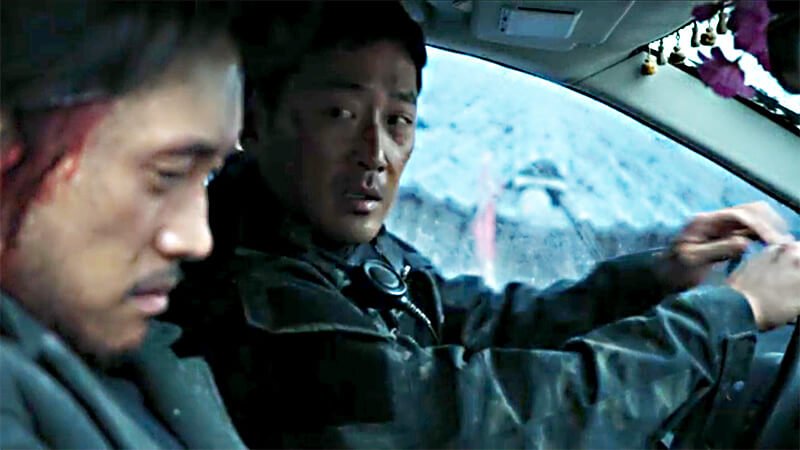
Lee Byung-hun and Ha Jung-woo in ‘Ashfall’ (2019)
Synopsis
In the tradition of nail-biter disaster movies, we get off to an explosive start. In a few quiet moments we meet a few key characters. Then, boom! A devastating 7.8 earthquake rocks the Korean peninsula to its knees. The cause: Sleeping volcano Mount Paektu at the border of North Korea and China has come violently to life. Buildings topple, bridges collapse. Countless die. It’s chaos everywhere.
And that’s just the start. As Professor Kang Bong-rae (Ma Dong-seok), an expert volcanologist, explains to the assembled military and civilian leaders, there are three more magma chambers waiting to unleash even harsher devastation.
So it’s time for a desperate, and desperately elaborate, plan: A team of military demolition experts, led by Captain Jo In-chang (Ha Jung-woo), sets off amongst the chaos to North Korea to steal some uranium out of some nukes. Which they will then transport to mines around the volcano at the border with China. They’ll use the uranium to arm a device to set off an explosion that should take pressure off the third magma chamber to stop the last and most deadly eruption. Got it?
Oh yeah, to find the nukes they have to spring South Korean operative Lee Joon-pyeong (Lee Byung-hun), who may or may not be a double agent, from a North Korean prison. And they need to tread carefully lest North Korea or China mistake their intentions.
Meanwhile, Professor Kang must set aside his frustration with the bureaucrats to finetune the plan and get final instructions to the team.
And that’s not the half of it. Initial plans go awry. Double crosses happen, or seem to happen. The US Army shows up to play the role of the heavy. Chinese gangsters want to snag the nukes for themselves. Subplots involving Jo’s pregnant wife and Lee’s lost daughter provide distractions and detours. There’s even some humor.
See It
Lee Byung-hun is predictably good as the weary operative who apparently cares more about finding his lost daughter than helping to save Korea at the moment. Ha Jung-woo also turns in a believable performance as the military leader who must care more about saving Korea than saving himself. Because you know that disaster movies always require sacrifice, that leads to a climax where you are always second-guessing the outcome.
The concluding “one year later” scenes provide some tear-jerking moments as the survivors remember the fallen and look forward to a more united future.